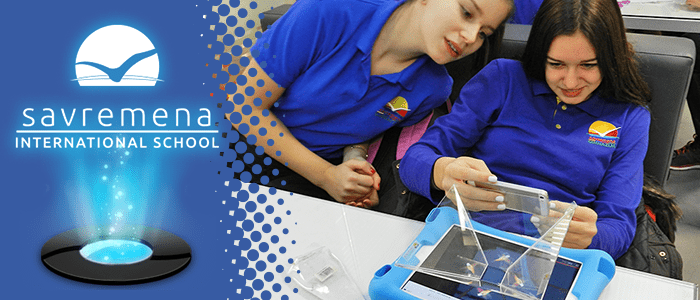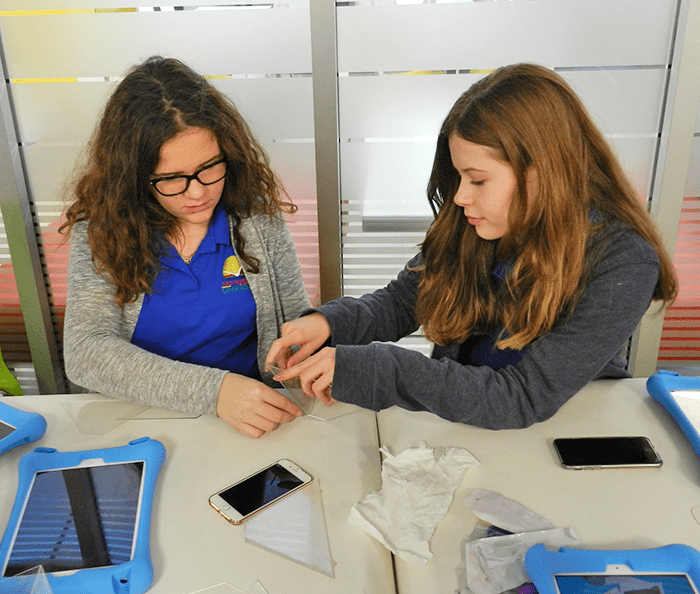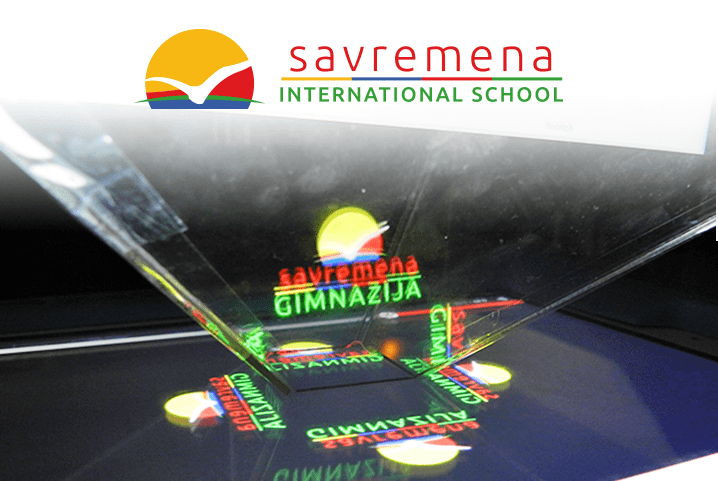
Students of Savremena International School conducted interesting experiments with holograms within their physics lessons and thus began celebrating the Science Festival within the school premises. Our physics teacher, Tijana Marinković, designed a truly different lesson where students use light effects in order to holograms with the logo of their school.
This seemingly difficult task rapidly became easy and entertaining, and the laws of physics, refraction of light and creating hologram images were brought closer to our students practically through playing.
You can try this yourself!
 So, what did this interesting lesson look like?
So, what did this interesting lesson look like?- How does the magic of holograms appear?
- How can you make them yourselves from home?
With clear and simple instructions that our students practiced within their physics lesson, you can find a lot of fun and interesting findings.
As the magic of holograms is based upon the magic of light, our students used this opportunity to discover that there are two light phenomena: diffraction, a phenomenon in charge of deflecting the light when the light is obstructed or comes to an opening, and interference, which collects light beams.
For this experiment you will need: a mobile phone or iPad, an image with details that appear symmetrically on your phone or iPad, and a pyramidal shape with a hole. Within their lesson, our students used Savremena International School’s logo, that was located on all four sides of the screen, and a pyramid made of plexiglass.
What did this look like in practice?
Firstly, students of Savremena International School made a four-sided pyramid pyramid made of plexiglass and a hole at the bottom, and then they placed them over their iPads. This opening is important for deflecting the light, i.e. diffraction that we previously learned about.
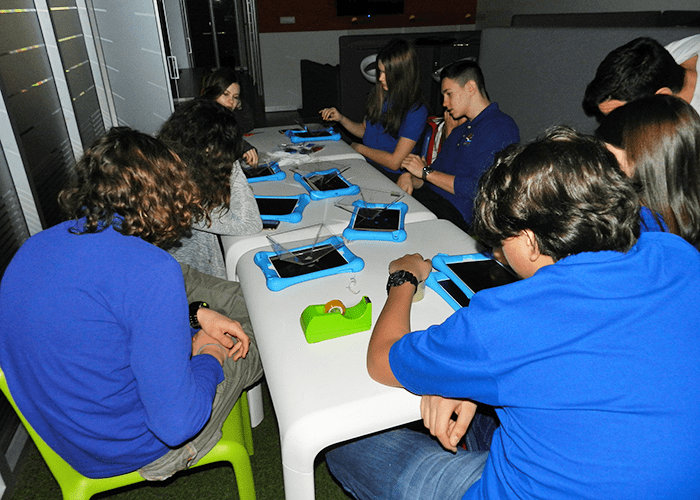 That way, the screen of the iPad projects the logos of Savremena International School on all the four sides of the pyramid due to the very process of deflection of the light through the hole (diffraction). Every observer sees the image on each side of the pyramid, and the image they see depends on the angle of the pyramid.
That way, the screen of the iPad projects the logos of Savremena International School on all the four sides of the pyramid due to the very process of deflection of the light through the hole (diffraction). Every observer sees the image on each side of the pyramid, and the image they see depends on the angle of the pyramid.
Our students learned why it was necessary for angles to exist, and why there shouldn’t be straight angles, because in that case, the deflection of light wouldn’t be possible. That’s why they couldn’t use a cube or a ball for this experiment, but only a pyramid.
Finally, in the centre of the pyramid there was an complex three-dimensional image - a hologram - due to the collection of light waves from all the sides of the pyramid (interference).
Students of Savremena International School eagerly wait for the new experiment
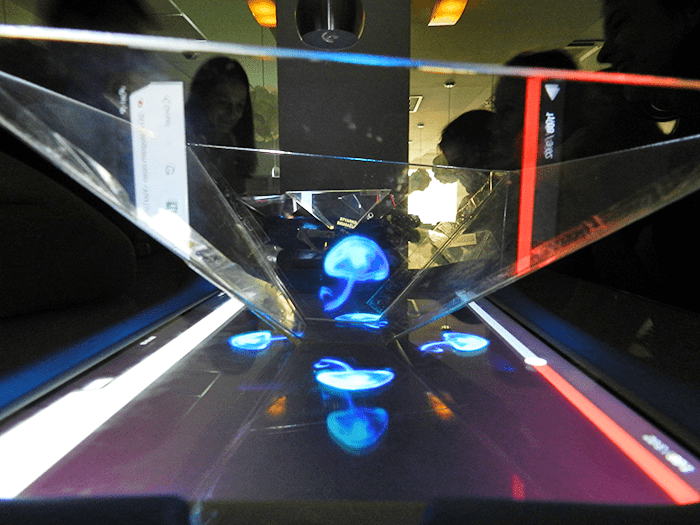 With the help of this experiment, the students of Savremena International School learned also why it is better to use a four-sided than a three-sided pyramid, because the more light waves are collected, i.e. the more sides there are on the pyramid, the more powerful the image is.
With the help of this experiment, the students of Savremena International School learned also why it is better to use a four-sided than a three-sided pyramid, because the more light waves are collected, i.e. the more sides there are on the pyramid, the more powerful the image is.
Also, they learned that it is necessary for the pyramid to be made of see-through plastic, because light is emitted better through see-through objects, whereas black objects would absorb all the light.
Our students were astonished with this lesson, because they had an opportunity to use their knowledge and the principles of physics and link them with interesting phenomena they feel drawn to. Knowledge applied this way, remains in their memory for a longer time, and that is why we will strive to make more lessons such as this one for our students.
Pictures that show the experiments with holograms in more detail, you can find here.

